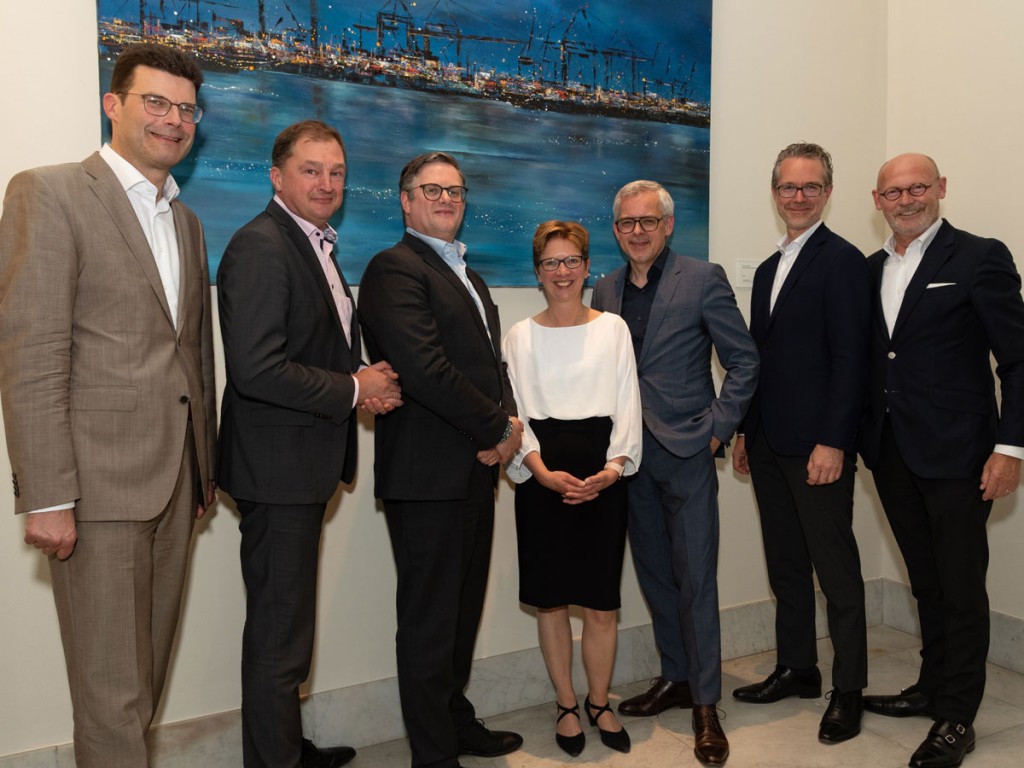First joint reception in Berlin
Closer cooperation between the German North Sea ports is possible. This was one of the outcomes of the first discussion session of the North German seaports in Berlin. More than 100 attendees followed the stimulating discussions chaired by Oliver Detje, Publishing Director at DVV Media Group.

No matter where in Germany the discussions take place, they are all marked by the same objectives: the prime concerns are firstly the competitiveness of the German ports in relation to the ports in Belgium, the Netherlands and France, all of which receive substantial state aid, and secondly upgrading the infrastructure. In the course of the event, it clearly emerged that the key future topics of energy security, climate neutrality, digitisation and automation will be central aspects of future port policies.
The participants agreed that the National Port Strategy would have to provide far more support for the ports to cope with these tasks. At the same time, the ports themselves were called upon to cooperate closely in order to address the forthcoming challenges.
In view of this situation, the port locations intend to conduct further joint events in order to generate new impetus for close cooperation between the ports.
Dr Claudia Schilling, Bremen’s Senator for Science and Ports: “The development of a new National Port Strategy is absolutely essential to address the present situation. Ports will be able to ensure supply reliability and energy independence in Germany only if the politicians at national and Federal Land level, as well as the port and transport industry all work in close cooperation. Bremen and the other coastal states will continue to shoulder their responsibility in future and invest in the port infrastructure. At the same time, however, we expect the federal government to assume a reasonable share of these tasks.”
Michael Westhagemann, Hamburg’s Senator for Economic Affairs and Innovation: “We have to become faster and we have to provide the right framework conditions. That is the only way we can all develop the future of the ports together. This is essential to turn our ports into energy hubs and that is the only way we can succeed in achieving climate neutrality.”
Dr Berend Lindner, State Secretary at Lower Saxony’s Ministry of Economic Affairs, Labour, Transport and Digitisation: “An efficient transport network and well developed infrastructure are vital for the North German ports. If we are to strengthen the competitiveness of our seaports in relation to the western range ports, we have to speed up our infrastructure projects. The current example of planning and implementing the LNG terminal in Wilhelmshaven clearly shows that it is in fact possible to execute mega-projects promptly. Adoption of the German act to accelerate the use of LNG has created the decisive legal framework for this to succeed.”









